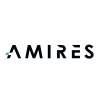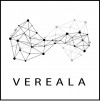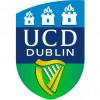Are you interested in contributing to the development of OECD test guidelines ,but don’t know where to start? Or do you already contribute to this process, but want to know how to avoid delays in your methods being adopted? If so, then we’d like to hear from you in our new webinar series.
During the first half of 2022, the NanoHarmony Project (https://nanoharmony.eu/) is running a webinar series covering the journey of a test guideline (TG) through the OECD process to be able to understand the challenges and barriers that need to be addressed at each stage. The webinars will all be interactive with the aim of gathering input from all stakeholders involved in the OECD test guideline development process, along with those that are interested in the use of TGs, as well as researchers who are looking to develop their outcomes into new TGs.
The webinars will cover the different phases that an OECD TG progresses through during its journey from a science based initial idea through to use in industry to fulfil regulatory obligations. The webinars will bring together a range of presenters involved with the relevant TG phase to discuss the barriers and learning lessons so that proposals can be made to improve the development process and make it more efficient.
All stakeholders are invited to attend to give their opinions and to help agree consensus on the barriers and ways of improving the test guideline process that can be actioned as part of the legacy of the NanoHarmony project. The webinars will be highly interactive and attendees will have the opportunity of sharing their experiences, thoughts and suggestions.
The webinars will be held every 3-4 weeks starting from 1 March 2022 and stakeholders are able to attend the most relevant phases that they are interested in or indeed the whole series.
Phases 2 and 3 Technical development and commenting and approval
Speakers:
- Chair Claus Svendsen (UKCEH)
- Mar Gonzalez (OECD)
- Thomas Kuhlbusch (BAuA)
- Frank von der Kammer (University Vienna)



















